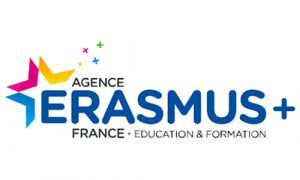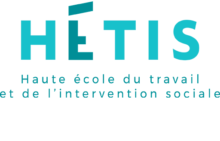INTERNATIONAL MOBILITY
Developing European and international mobility in social work education
The International Relations Department at HETIS supports the development of mobility opportunities for students, apprentices, trainees and staff—across Europe and beyond.
Contact
International Relations Department
Foreign students and professionals coming to HETIS
HETIS welcomes international students, teachers, and professionals from its partner institutions in the field of social work. Opportunities for individual or group mobility can be arranged through Erasmus+ or other cooperation frameworks.
HETIS offers semester-based mobility programs (in French) for Erasmus+ students in the following study tracks:
- Social Worker (« Assistant.e de Service Social »)
- Early Childhood Educator / educator of young children (« Éducateur/rice de Jeunes Enfants »)
- Social / specialized Educator (« Éducateur/rice Spécialisé.e »)
They all prepare to a state diploma which gives 180 ECTS and is classified at EQF level 6.
We also support shorter mobility projects or staff exchanges, including teaching assignments and job-shadowing visits, in collaboration with our European and international partners.

Hetis students and staff going abroad
The International Relations Department supports HETIS learners—students, apprentices, and vocational training participants—as well as staff members, in organizing international mobility projects.
This support is made possible through:
- an outgoing mobility scheme, both individual and collective, offered to all students, relying on European programs (Erasmus+), the regional PRAME-SASO program, and other partners including OFAJ (Franco-German Youth Office) and OFQJ (Franco-Quebec Youth Office);
- an outgoing mobility scheme for staff, who may take part in training mobilities or teaching exchange programmes abroad, supported depending on the project by Erasmus+ or by HETIS’s national training funder (OPCO Santé).
HETIS is committed to the values of the European Higher Education Area and holds the Erasmus+ Charter for Higher Education 2021–2027.



MATIS Project: increasing the mobility for social work apprentices
Apprentices can also take part in an international mobility experience—typically during the « outside employer » internship period. Whether short or long (up to 2 months), these placements contribute significantly to the development of intercultural skills, autonomy, and professional maturity.
Mobility expenses may be covered through Erasmus+, regional grants, and the French training funding body (OPCO) of the apprentice’s employer.
HETIS benefits from co-funding by the European Union through the European Social Fund Plus (ESF+) to implement a project on long-term mobility for apprentices in Social Work and Social Intervention (called MATIS).
The project aims to engage apprentices, local employers, and European stakeholders in the social action sector to support and promote long-term mobility experiences (internships of two months or more) for apprentices.
It provides apprentices at HETIS with personalised guidance and tools at each stage of their mobility project to:
- remove administrative, organisational, and financial barriers that may limit long-term mobility opportunities;
- secure their learning path through tailored support before, during, and after the mobility period;
- enable apprentices to fully benefit from their mobility experience, which is particularly valuable in the health and social care sector, as it contributes to enriching professional practices, fostering autonomy and adaptability, strengthening the ability to work in intercultural contexts, and opening apprentices to diverse approaches in social work.



